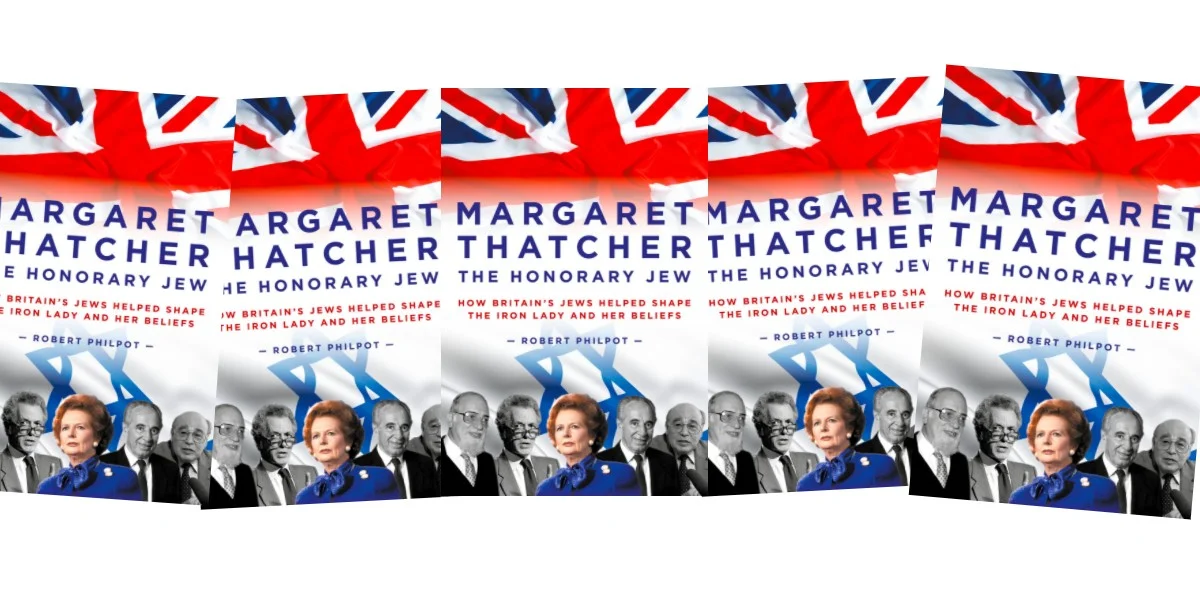Margaret Thatcher - The Honorary Jew
Margaret Thatcher's premiership changed the face of modern Britain. Yet few people know of the critical role played by Jews in sparking and sustaining her revolution. Was this chance, choice, or simply a reflection of the fact that, as the Iron Lady herself said: ‘I just wanted a Cabinet of clever, energetic people and frequently that turned out to be the same thing’?
In this book, the first to explore Mrs Thatcher’s relationship with Britain’s Jewish community, Robert Philpot shows that her regard did not come simply from representing a constituency with more Jewish voters than any other, but stretched back to her childhood. She saw her own philosophical beliefs expressed in the values of Judaism – and in it, too, she saw elements of her beloved father’s Methodist teachings.
Margaret Thatcher: The Honorary Jew explores Mrs Thatcher’s complex and fascinating relationship with the Jewish community and draws on archives and a wide range of memoirs and exclusive interviews, ranging from former Cabinet ministers to political opponents. It reveals how Immanuel Jakobovits, the Chief Rabbi, assisted her fight with the Church of England and how her attachment to Israel led her to internal battles as a member of Edward Heath’s government and as Prime Minister, as well as examining her relationships with various Israeli leaders.
Here are some early reviews of of the book:
“Meticulously researched and skilfully written, this book delivers something that’s very difficult to do these days – namely to provide a genuinely fresh perspective on one of Britain’s, indeed the world’s, most talked-about political icons.”
Tim Bale, professor of politics at Queen Mary University of London
“We all think we know about Maggie – and especially her relationship with the Jewish community and Israel. Robert Philpot's brilliantly readable book shows just how superficial the received wisdom is. Anyone who wants to understand what made Baroness Thatcher tick needs to read this.”
Stephen Pollard , editor of the Jewish Chronicle
“An original and important contribution to works on Thatcherism. This well-researched book is filled with fresh insights into the rapport the Prime Minister had with her circle of energetic Cabinet Ministers and No. 10 advisors from Jewish backgrounds. Robert Philpot’s revealing portraits of Keith Joseph, Nigel Lawson, Malcolm Rifkind, David Young, Alfred Sherman, Stephen Sherbourne and other key figures are particularly perceptive.”
Jonathan Aitken former Cabinet minister and author of Margaret Thatcher: Power and Personality
“This is an excellent, well-researched and very readable book. Margaret Thatcher had a unique relationship with the Jewish community which influenced her beliefs and actions. That relationship was a part of the history of those years.”
Malcolm Rifkind, former Cabinet minister (1983–1997)
The Purple Book - A Progressive Future for Labour
Leading Labour figures re-examine traditional Labour ideas to come up with fresh policies for the party’s revival. The Purple Book calls for the Labour Party to rediscover the non-statist strand of its history and thought and develop a progressive agenda, with the redistribution of power to individuals and local communities at its heart. This agenda stretches beyond the state and public services, to the economy and the workplace. With contributions from some of leading lights of the New Labour movement The Purple Book identifies four strands of renewal for the party, positing a new role for the state, new models of capitalism and growth, and new ways to build a fairer society and stronger communities. It calls for policies that meet the challenges of restoring growth to the British economy, increasing the number of high-value jobs, addressing the stagnation in real incomes for working families, ensuring value for money and accountability in public services and keeping the tax burden as low as possible. The Purple Book takes the Labour Party back to its roots in an attempt to show a progressive and winning way forward.


